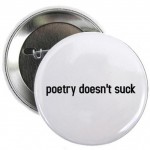
Aristotle
Genre is something I do, so to speak, and have done for awhile. Most of my colleagues specialize in a particular genre, and they (genres, not colleagues) are of course often used to shape ads for professorial employment. My specialty, so to speak, genre is poetry in various forms, though there are as well novels I consider to be mine.* But in addition I teach genre theory or genre studies** in various courses, and so it is extra shameful that I fall into a group of those shamed, so to speak, by periodical studies.

MM Bakhtin

Croce
Well, before shame, a detour that interests me. A good chunk of my poetic genre studies have been on the vaunted and authoritative genre of the epic, and one of the things that I have mused about with this particular beast is that there is no such thing as a failed or bad epic. If it is bad, then it is simply not an epic– that is to say, some concept of quality is built right into the working sense of the genre itself. That’s not so of other literary genres: we have failed novels, bad lyrics, poorly wrought plays, really, really lame short stories—well, so to speak. But “epic” implies greatness, including in contemporary slang***. I have been thinking about the fact that the same thing is basically true of the genre little magazine. Vaunted. Authoritative even as it sometimes eschews authority (I’m NOT looking at you, Wyndham Lewis). Exactly

Derrida
what makes something a little magazine**** and whether or not it should be seen as different than other periodicals that also included or reviewed literature and art is pretty hotly debated, but its quality or importance, or at least its epic, so to speak, reach, is assumed. And this is (possibly) pertinent: it cannot be a failed little magazine because failure (of finances,of circulation, of endurance) is pretty much part of its definition.
Okay, to the shame, and I better ‘fess up immediately: I have been among the unenlightened who have mined periodicals for specific works and authors.

Frye
I’m not proud of it, but there it is. And of course doing so, seeing the magazine “too often […] essentially as aggregations of otherwise autonomous works,” like an anthology (Brad Evans in Brooker and Thacker Volume II, 145: “a media venue for the collection and distribution of material, as we customarily think of magazines”) is not attending well to its own genre and to the bibliographic/periodical code.***** Funny (strange, laughable): I don’t really do this for contemporary periodicals. I see articles in a context, even if digital: The Journal of International Women’s Studies; People (to name just a few elitist academic publications). But when I poke around in the MJP, I have been more liable to search for specific authors or pieces.****** But reading cover to cover, in order, is not part of the expected generic behavior for a magazine. Unlike the reading expectations for a novel, in which one is intended to move from beginning to end (which one may or may not always do, as long as one is

Devitt
confessing), reading expectations for a magazine most likely presume skipping around or skipping altogether, reading just what is of interest, pausing on images or text that catch one’s attention but thumbing/clicking past other items.

Miller
But even so, obviously, once one thinks of it, the context matters– Scholes and Wulfman say that it is an “error” to think of a story that is published in both a magazine and a book as the same, even if every word is consistent– what is around it (even if you skip it), its layout, etc.– these are inextricable from meaning (75). A painting in a museum is not the same as a superior forgery of that painting or a high quality reproduction of that painting OR–here’s the clincher–that same painting in someone’s living room.
My echo, so to speak, for this post, but one that others note as well: sifting the modernist magazines to isolate specific chunks of gold (first published poem by H.D., an earlier version of a Stevens poem) has dangers (among them: “I got a rock”) that mimic the dangers of traditional Modernist studies: distinguishing, even cloistering,the artistic geniuses/genii from a rich, dialogic context.
*e.g., Mrs. Dalloway (step off, Lorentzen and Foss) or The Return of the Soldier.
** that link is to Wikipedia, and it’s a surprisingly rich page.

Wittgenstein
*** and that link is to the urban dictionary, and it’s a not-surprisingly profane page. You have been warned.
**** a favorite, from Faith Binckes’s book Modernism, Magazines, and the British Avant-Garde: “the familiar representation [is] of little magazines as small, independent guerrilla units, who are subject to war and insurrection but are rarely open to diplomacy or trade” (40). Now I AM looking at you, Wyndham Lewis.
Another favorite: “We must learn to stop talking, writing, and thinking as if the category of ‘little magazines’ represents something real in the textual world. It is a dream category, an attempt to unite periodicals of which the uniter approves and exclude those lacking such approval” ( Scholes and Wulfman, Modernism in the Magazines: An Introduction 60). This gets at my point about the assumed excellence of this (apparently specious) genre.
*****Sean Latham and Robert Scholes, “The Rise of Periodical Studies,” PMLA 121.2 (March 2006), 521. “Bibliographic code” is an idea usually traced to Jerome McGann, and in their massive Oxford Critical and Cultural History of Modernist Magazines, Peter Brooker and Andrew Thacker argue for a “periodical code” in the study of periodicals, as do some others. One of the things at stake here is the preservation of ads in periodicals, which have frequently been preserved with such elements excised, thus further/falsely divorcing the intellectual/social/political content from its material circumstances and, as well, obliterating clues about intended audience and periodical networks.
“There are different genres of magazines,” says my eleven-year-old, looking over my shoulder, “but I don’t think a magazine is a genre.” Generational shame.
****** Conflict? Attend to periodical publications in their entirety, as a genre– but also, as called for strongly by Scholes and Wulfman in Modernism in the Magazines: An Introduction, to digitize them with sophisticated search engines that avert the need to browse and to visualize works and authors in full context.
 contemporary world is something I make students talk about to excess when I teach Contemporary Poetry–(one semester we all wore this button to spread the word)– etc. Both poets and critics are part of Hix’s project, which he hopes to eventually move from his blog to a book, though in some ways the sheer size of what the blog can hold makes it a perfect receptacle (see: my still-unwritten essay on “the capacious blog”).
contemporary world is something I make students talk about to excess when I teach Contemporary Poetry–(one semester we all wore this button to spread the word)– etc. Both poets and critics are part of Hix’s project, which he hopes to eventually move from his blog to a book, though in some ways the sheer size of what the blog can hold makes it a perfect receptacle (see: my still-unwritten essay on “the capacious blog”).








